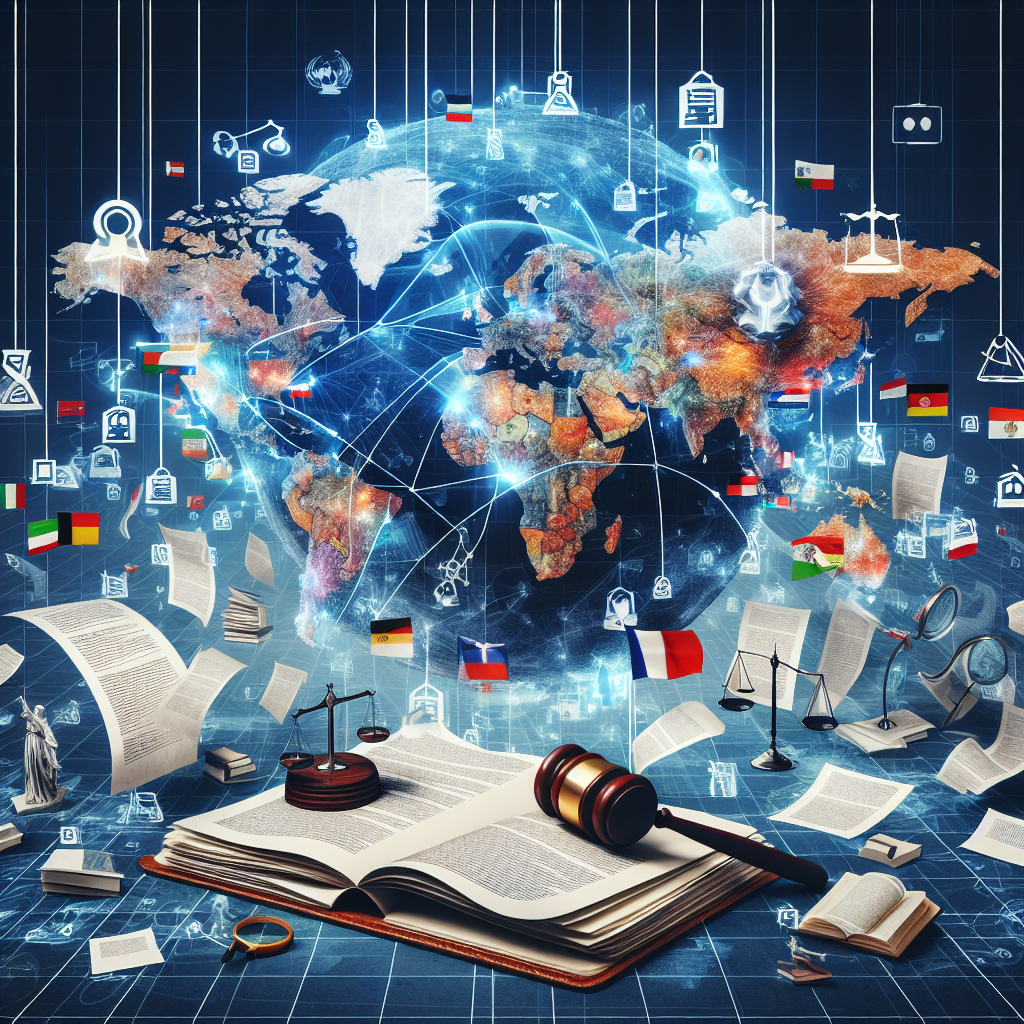Data Privacy and Legal Tech Across Different Jurisdictions
Data Privacy and Legal Tech Across Different Jurisdictions
In today’s digital age, data privacy and legal tech are two of the most critical areas of focus for businesses and legal professionals. As technology evolves, so do the regulations governing data privacy across different jurisdictions. Understanding the intersection of data privacy and legal tech is essential for compliance and leveraging technology to improve legal processes. This article delves into the complexities of data privacy regulations worldwide and how legal tech is adapting to meet these challenges.
Understanding Data Privacy Regulations
Data privacy regulations vary significantly across different jurisdictions. Each country or region has its framework to protect personal data, often reflecting its cultural and societal values. Here’s a look at some key legislations:
1. European Union: General Data Protection Regulation (GDPR)
The GDPR is arguably the most well-known data privacy regulation. It applies to all EU member states and impacts any organization handling the data of EU citizens, regardless of its location. The GDPR emphasizes the protection of personal data and grants individuals significant rights over their information, including the right to access, rectify, and erase personal data. Legal professionals must ensure compliance to avoid substantial fines and penalties.
2. United States: A Patchwork of Regulations
In the U.S., data privacy is governed by a patchwork of federal and state laws rather than a single comprehensive regulation. Notable laws include the California Consumer Privacy Act (CCPA), which grants Californians rights similar to those under the GDPR, and the Health Insurance Portability and Accountability Act (HIPAA), which focuses on healthcare data. Navigating this complex landscape requires a robust understanding of the specific laws that apply to your industry and jurisdiction.
3. Asia-Pacific: Diverse Approaches
Countries in the Asia-Pacific region have diverse approaches to data privacy. For instance, Australia’s Privacy Act governs the collection and handling of personal data, while Japan’s Act on the Protection of Personal Information (APPI) has been recently amended to align more closely with the GDPR. Businesses operating in these regions must stay abreast of local laws to ensure compliance.
The Role of Legal Tech in Data Privacy Compliance
Legal tech, the use of technology to deliver legal services, is pivotal in helping organizations navigate the complex world of data privacy. Here are some ways legal tech is transforming compliance:
1. Automated Compliance Tools
Legal tech solutions offer automated compliance tools that streamline the process of adhering to data privacy regulations. These tools can monitor data handling practices, identify potential breaches, and ensure that data subject requests are managed efficiently. This automation reduces the burden on legal teams and helps maintain compliance effortlessly.
2. Data Mapping and Risk Assessment
Legal tech enables detailed data mapping and risk assessment, crucial for identifying where personal data is stored and processed. By understanding data flows, organizations can pinpoint vulnerabilities and implement measures to mitigate risks, ensuring data privacy across all jurisdictions.
3. AI and Machine Learning
Artificial Intelligence (AI) and machine learning are transforming legal tech by providing predictive analytics and insights. These technologies can analyze vast amounts of data to identify patterns and risks, offering proactive solutions to potential compliance issues. AI-driven tools can also facilitate cross-border data transfers by ensuring compliance with international regulations.
Challenges and Opportunities
While the integration of legal tech in data privacy compliance offers numerous benefits, it also presents challenges. Data privacy laws are continually evolving, requiring legal tech solutions to be adaptable and up-to-date. Additionally, ensuring data security and privacy within legal tech platforms themselves is paramount to prevent breaches.
However, these challenges also present opportunities for innovation. Legal tech companies that can offer scalable, secure, and adaptable solutions will lead the market. Moreover, as organizations increasingly prioritize data privacy, the demand for skilled professionals who understand both legal tech and data privacy will grow.
Conclusion
Data privacy and legal tech are intrinsically linked, with each evolving to meet the demands of a digital world. As data privacy regulations vary across jurisdictions, businesses must leverage legal tech to ensure compliance and optimize legal processes. By embracing cutting-edge technologies and staying informed of regulatory changes, organizations can navigate the complexities of data privacy with confidence.
In conclusion, understanding the landscape of data privacy across different jurisdictions and integrating legal tech solutions is not just a legal requirement but a strategic advantage. As technology continues to evolve, staying ahead of the curve in data privacy will be crucial for businesses and legal professionals worldwide.































































































































